These signs are not just about cognitive abilities but also manifest in various aspects of a child’s behavior and development.
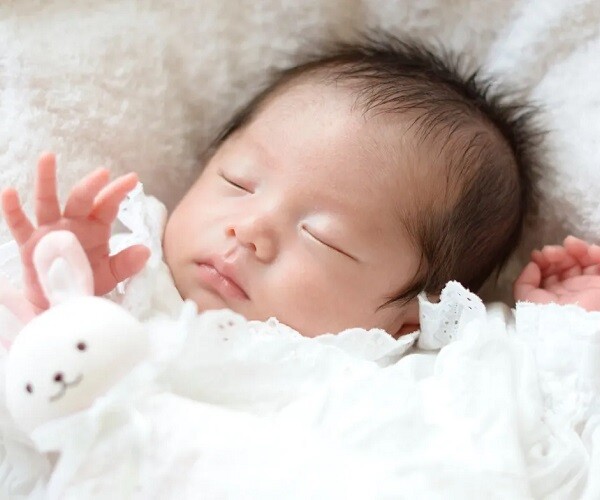

Early Laughter
As early as two months old, many babies will giggle happily. Medical experts have discovered, through research on the developmental relationship between age and intelligence, that a well-developing infant brain will be able to react to external stimuli, such as laughter.
For newborns, everything in this world is new and unfamiliar. When a baby giggles in delight, it reflects their keen senses and indicates their ability to initiate psychological activities. This means the child is not merely reacting instinctively but has started to differentiate between what brings joy and what does not.
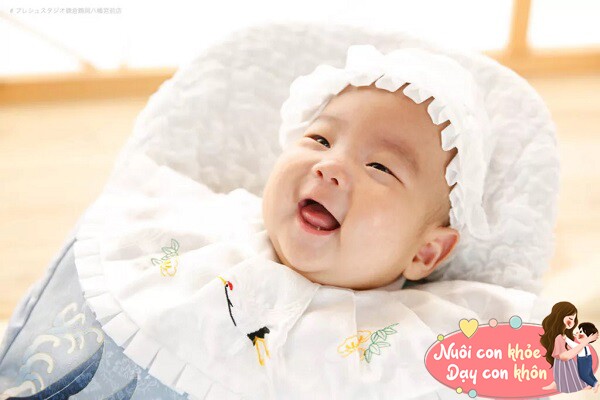
Early laughter.
This is also a sign of cognitive development. When babies laugh at pleasant sounds, friendly faces, or simple games, they are learning about social relationships and emotions.
Additionally, from a physiological health perspective, modern medicine suggests that sincere laughter stimulates the respiratory and blood circulation systems. Laughter increases oxygen levels in the blood, improves oxygen transport, and benefits cardiovascular health and brain development. Thus, a child’s laughter brings joy to themselves and positively impacts their physical and mental well-being.

Early Physical Activity and Mobility
We all know that physical activity contributes to a healthy and robust body and is beneficial for brain development.
Since a child’s arm and leg movements are controlled by motor nerves in the brain, the more these nerves are stimulated, the better they develop, resulting in increased brain volume and improved intelligence.
Good and early development of gross motor skills indicates better brain development. Simultaneously, when children start to roll over and crawl, their field of vision expands, and they are exposed to external stimuli earlier and more frequently, which is advantageous for brain stimulation and the development of the right brain hemisphere.
If your child is healthy and achieves major physical milestones (rolling over, sitting up, crawling) earlier than their peers, it suggests healthy brain development.
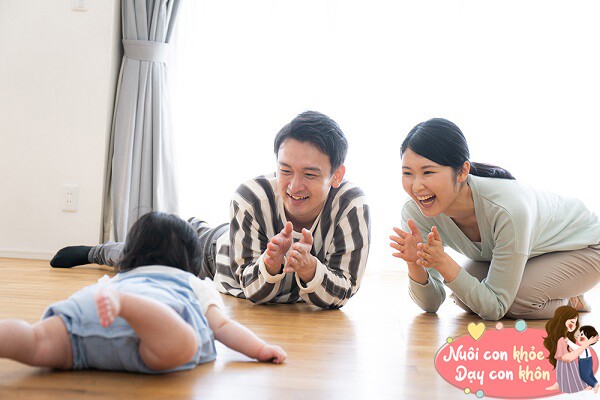
Early physical activity and mobility.

Enjoys Playing Alone
When a child can play with toys independently, it often signifies their ability to focus.
Therefore, when your child is seriously playing, refrain from asking questions like, “What are you playing, honey?” or “Do you need help, dear?” Such “concerns” may distract their attention.
Instead, create a quiet and comfortable space for them to explore and concentrate on their play. Sometimes, letting children handle situations on their own fosters the development of independent thinking skills.
To encourage focus, pay attention to toy choices. Toys that stimulate imagination and creativity, such as puzzles, building blocks, or art kits, will help children maintain their attention for longer periods.
Additionally, limiting screen time is crucial. Research indicates that excessive screen time can impair a child’s ability to concentrate.
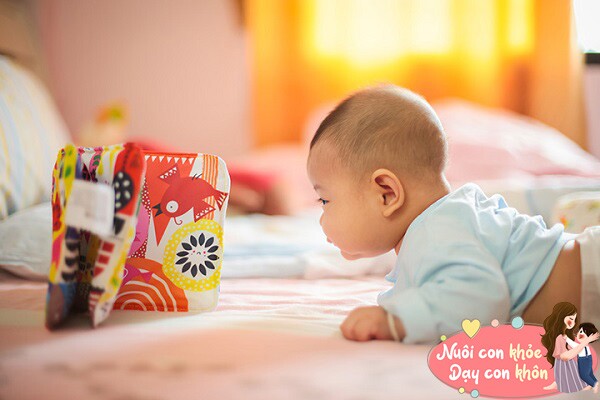
Enjoys playing alone.

Early Understanding of Adult Speech
Generally, infants aged seven to nine months, alongside rapid developments in vision, hearing, and cognition, can sit up without external support and begin to react when called by name, thus developing a deeper sense of self-awareness.
Additionally, they observe adults’ facial expressions and tone of voice to understand what is being communicated.
As children grow, their language skills and cognition improve. They may start associating common household objects with their phonetic names and then understanding simple instructions from parents, such as “bye-bye,” “Mommy, hug,” or “give me your hand.”
If your child understands what adults are saying earlier than their peers, it means they are more sensitive to language and may start speaking earlier.
According to the Davidson Institute, among gifted children, about 91 percent exhibit early language development.
In the Davidson Institute’s 2000 Talent Development study, which involved 241 “gifted” children, the average age for saying the first word was nine months.
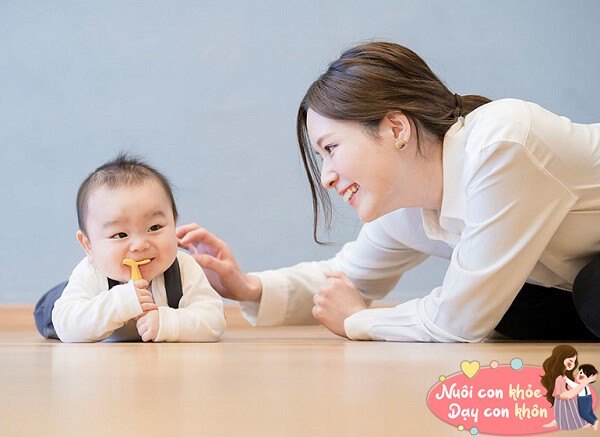
Early understanding of adult speech.

Good Memory
A newborn with a good memory is a significant sign of high IQ. For instance, they may recognize familiar faces and smile happily upon seeing them. This recognition demonstrates their ability to remember and differentiate between known faces.
Infant memory continues to develop over time. Research indicates that when babies start to recognize and remember faces, sounds, or smells, it signifies active brain development. The ability to remember early events and experiences lays the foundation for future cognitive development.































